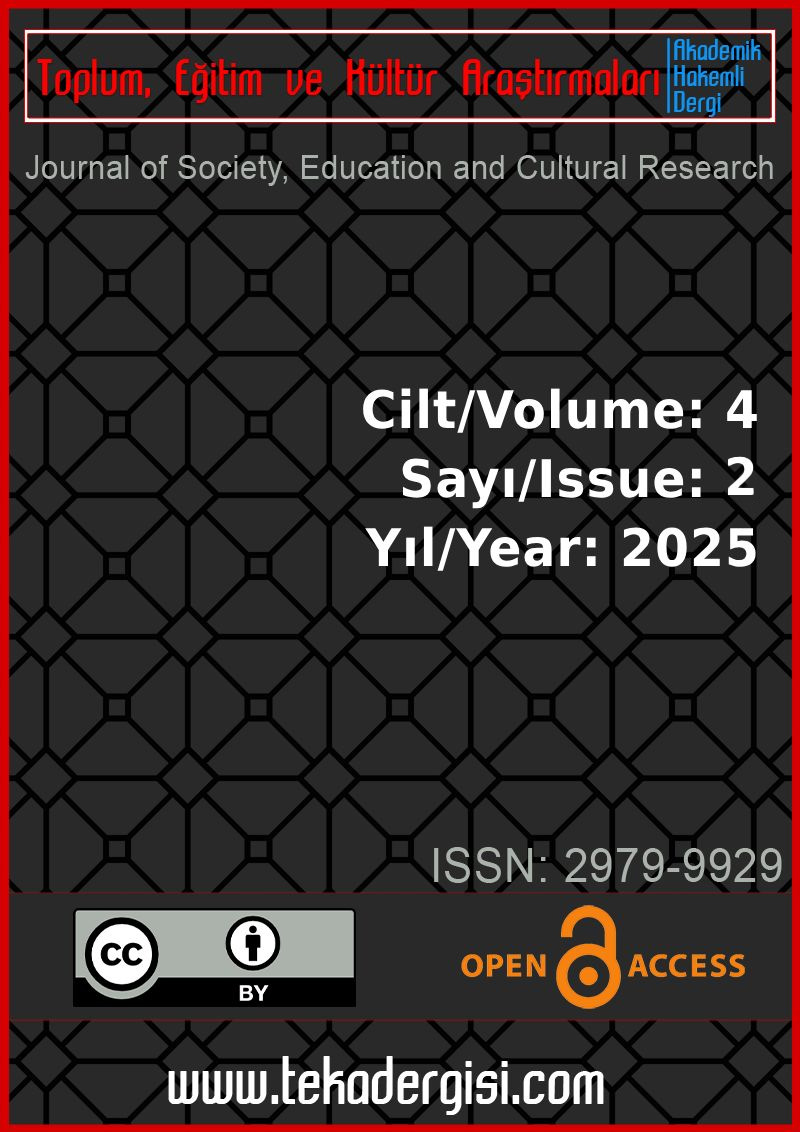Bibliometric Analysis of Artificial Intelligence Research on Leadership
DOI:
https://doi.org/10.5281/zenodo.17127915Keywords:
Artificial intelligence , educational management , Leadership , bibliometrics analysisAbstract
This study aims to examine research trends on leadership and artificial intelligence (AI) applications through a bibliometric method, based on academic publications between 2015 and 2025. AI has the potential to transform educational management through functions such as data analysis, predictive modeling, learning analytics, and the automation of administrative processes. The data of the study were obtained from the Web of Science database by searching with the keywords “artificial intelligence” and “leadership” or “education.” Within the scope of bibliometric analysis, the distribution of publications by year, research method, country, subject area, author, and Sustainable Development Goals (SDGs) was examined. The findings show that 77 open-access articles on the subject were published between 2015 and 2025. It was observed that the number of publications increased especially after 2021 and reached its highest level in 2024. The majority of the studies are in the field of educational research, and it was determined that most of the publications originated from the USA, China, the UK, and Australia. Only one publication from Türkiye was identified. In terms of SDGs, it was determined that the goals of “Quality Education” and “Good Health and Well-being” were mostly addressed, while themes of social equality and justice were limited. According to the results of the study, although academic interest in AI and leadership is on the rise, studies are concentrated around certain countries and themes, while social dimensions are relatively neglected. It is recommended that future studies strengthen an interdisciplinary approach and cover different cultural contexts.
References
Avolio, B. J., Sosik, J. J., Kahai, S. S., & Baker, B. (2014). E-leadership: Re-examining transformations in leadership source and transmission. The Leadership Quarterly, 25(1), 105–131. https://doi.org/10.1016/j.leaqua.2013.11.003
Bush, T. (2020). Theories of educational leadership and management (5th ed.). Sage.
Chen, L., Chen, P., & Lin, Z. (2020). Artificial intelligence in education: A review. IEEE Access, 8, 75264–75278. https://doi.org/10.1109/ACCESS.2020.2988510
Donthu, N., Kumar, S., Mukherjee, D., Pandey, N., & Lim, W. M. (2021). How to conduct a bibliometric analysis: An overview and guidelines. Journal of Business Research, 133, 285–296. https://doi.org/10.1016/j.jbusres.2021.04.070
Holmes, W., Bialik, M., & Fadel, C. (2021). Artificial intelligence in education: Promises and implications for teaching and learning. Center for Curriculum Redesign.
Karakose, T., Kocabas, I., Yirci, R., Papadakis, S., Ozdemir, T. Y., & Demirkol, M. (2022). The Development and Evolution of Digital Leadership: A Bibliometric Mapping Approach-Based Study. Sustainability, 14(23), 16171. https://doi.org/10.3390/su142316171
Karakose, T., & Tülübaş, T. (2024). School Leadership and Management in the Age of Artificial Intelligence (AI): Recent Developments and Future Prospects. Educational Process: International Journal, 13(1): 7-14. https://doi.org/10.22521/edupij.2024.131.1
Kılıç, G. N., & Kocabaş, İ. (2024). Yapay zekâ ile eğitim yöneticilerinin değişen rolleri. X. Uluslararası TURKCESS Eğitim ve Sosyal Bilimler Kongresi, 239-240.
Leithwood, K., & Jantzi, D. (2005). Transformational leadership. In B. Davies (Ed.), The essentials of school leadership (pp. 31–43). Sage.
Luckin, R., Holmes, W., Griffiths, M., & Forcier, L. B. (2016). Intelligence unleashed: An argument for AI in education. London: Pearson.
Northouse, P. G. (2022). Leadership: Theory and practice (9th ed.). Sage.
Pritchard, A. (1969). Statistical bibliography or bibliometrics?. Journal of Documentation, 25(4), 348–349.
Russell, S., & Norvig, P. (2021). Artificial intelligence: A modern approach (4th ed.). Pearson.
Siemens, G., & Long, P. (2011). Penetrating the fog: Analytics in learning and education. EDUCAUSE Review, 46(5), 30–40.
Şişman, M. (2018). Öğretim liderliği. Pegem Akademi Yayıncılık.
Williamson, B., & Eynon, R. (2020). Historical threads, missing links, and future directions in AI in education. Learning, Media and Technology, 45(3), 223–235. https://doi.org/10.1080/17439884.2020.1798995
Zawacki-Richter, O., Marín, V. I., Bond, M., & Gouverneur, F. (2019). Systematic review of research on artificial intelligence applications in higher education – Where are the educators? International Journal of Educational Technology in Higher Education, 16(1), 1–27. https://doi.org/10.1186/s41239-019-0171-0
Downloads
Published
How to Cite
Issue
Section
License
Copyright (c) 2025 Toplum, Eğitim ve Kültür Araştırmaları Dergisi

This work is licensed under a Creative Commons Attribution 4.0 International License.


